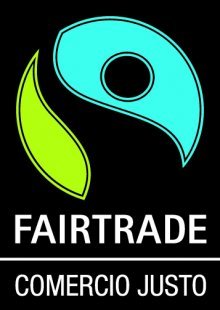Agriculture and Sustainability Lesson
William Korte, Language teacher at Seed Charter School in Evanston, Illinois, introduced his students to Central America by teaching about agriculture and sustainability. Korte introduced students to the history of banana cultivation and connected it back to global trade and the legacy of “banana republics.”
He created an interactive lesson using a certification activity where students designed their own “Banana Fair Trade” labels. Students researched fair trade principles and designed policies around worker rights, environmental sustainability, and community relations, exposing students to the real-world issues that impact producers in Central America and consumers in the United States. In addition to this activity, William tied environmental conservation in Central America into the lesson by teaching about pesticide use and the effects of deforestation on ecosystems and communities. Korte shared:
[Students] worked in groups to propose eco-friendly alternatives such as composting or intercropping. They presented their solutions as if they were advisors to a banana cooperative, which helped them think critically about the balance between economic needs and environmental health.
Korte took his lessons one step further by expanding it into a school-wide activity during Hispanic Heritage Month, organizing a “Banana Trade Fair” where student groups represented different Central American countries. Students shared research on culture, history, and trade while also showcasing the certification logos they had created. Korte shared:
Families and staff were invited to attend, which turned it into a community event that both celebrated Central American heritage and highlighted the importance of fair trade and sustainability.
Through these activities, my students not only gained cultural knowledge about Central America but also developed a deeper appreciation for the region’s global contributions and challenges.
They left with a clearer understanding of how their choices as consumers connect back to the daily lives of farmers and communities in Central America.

